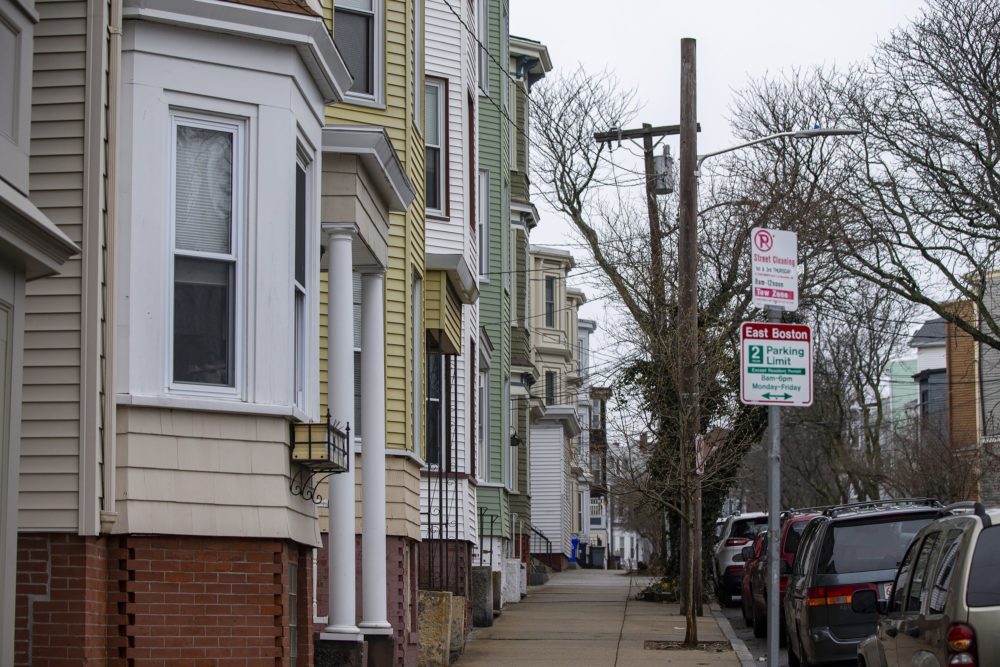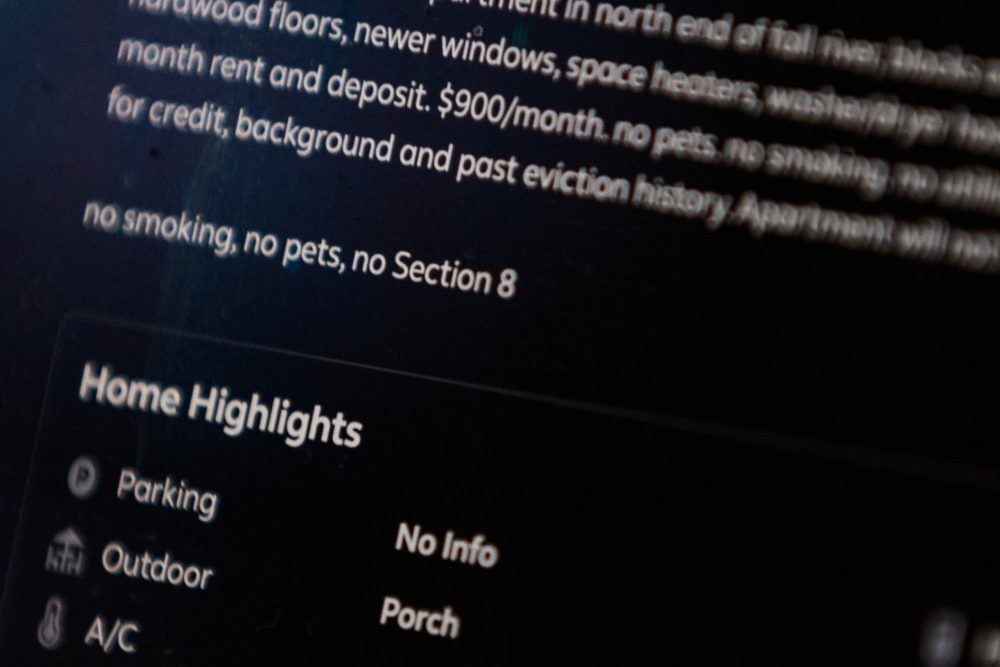As housing bias in Mass. persists, advocates want tougher penalties for landlords, agents

Triple and double decker apartment houses in Macormack Square in East Boston. (Jesse Costa/WBUR)
David Harris, a Boston fair housing advocate, says racism in housing transactions remains a significant problem, more than a half century after the federal Civil Rights Act.
And Harris has the test results to prove it.
His nonprofit asked two women from different racial backgrounds to pretend to be hunting for apartments in Somerville to see what would happen.
The agent told the white tester he had two units available and could show them right away. Separately, the same agent then told the Black tester nothing was vacant. The testers only discovered the disparity when they compared notes later.
“All of us were almost in tears, right? Because this guy had so thoroughly lied to her,” said Harris, who used to lead the now defunct Fair Housing Center of Greater Boston. “This is the power of testing. There’s no way she would know he was lying.”
Again and again, Massachusetts nonprofits have used these kinds of investigations to uncover systematic bias by landlords and real estate agents. A recent study by Suffolk University found 71% of Black testers faced discrimination.
Even more disturbing, the studies show the problem isn’t going away. Advocates say that’s partly because Suffolk and other nonprofits only have enough resources to check a tiny fraction of apartments listed each year. And even when they find clear evidence of discrimination, it’s rare for landlords and brokers to face any significant punishment.
“The system is structurally broken, and it needs to be fixed,” said William Berman, who leads Suffolk’s Housing Discrimination Testing Program.
The Massachusetts Board of Real Estate Brokers and Salespersons declined interview requests. But in a statement, it said it hasn’t disciplined a single agent for discrimination in the past five years.
Some advocates say the board needs to do more to punish agents to prevent bias, including suspending or revoking agents’ licenses.
“Often times, it’s not a matter of changing hearts and minds,” said Whitney Demetrius, who works for Citizens’ Housing and Planning Association, a Boston nonprofit that helps promote access to housing. “But when you affect the pocketbook, right, it tends to affect change along the way.”
The real estate licensing board said it has received only two discrimination complaints in the last five years, limiting its ability to take action.
Still, advocates say discrimination is often so subtle that renters don’t realize they are being treated unfairly — or don’t have any evidence to prove it.
“It’s not often that someone will say something to the effect of, I’m not going to rent to you because you are x race,” said Kelly Vieira, who helps run the Suffolk testing program.
That’s why nonprofits say undercover testing is so important to root out discrimination. But they also say they are hampered, because current state laws don’t allow them to refer cases directly to the real estate broker board.
Instead, they must send cases to the Massachusetts Commission Against Discrimination, which often takes years to resolve cases and doesn’t have the power to take away an agent’s license.
Some state officials insist they are trying to aggressively stop discrimination. Over the past four years, the Massachusetts attorney general’s office has reached more than 50 settlements with property owners, managers and agents.
The agency is now pursuing a case that accuses an apartment manager of not doing enough to prevent harassment of Latino residents by white neighbors, and a separate case where a landlord kicked out residents who were expecting a child and raised concerns about lead paint.
But advocates say more needs to be done. Some nonprofits are pushing for legislation that would let them report violations to the board that oversees real estate brokers. They also want to create a commission to study the state of housing discrimination enforcement in Massachusetts.
And the group that represents real estate owners and developers says the state needs to impose harsher penalties for people who repeatedly flout the rules. Greg Vasil of the Greater Boston Real Estate Board compared it to getting stopped for speeding.
“You get a couple of speeding tickets and your insurance premium starts to go up,” Vasil said. “I would think that if you have repeat offenders, that the penalties would increase.”
Vasil said some smaller owners may not even be aware of all the rules — like the fact that Massachusetts is one of more than a dozen states that bar landlords from turning away people just because they want to use housing vouchers.
It’s common to find apartment listings that brazenly advertise “No Section 8” online. And some property owners insist that kind of discrimination should be allowed.

An apartment listing in Fall River on the Trulia website. (Jesse Costa/WBUR)
Skip Schloming, a landlord based in Cambridge who ran the Small Property Owners Associations for decades, notes the state already legally allows people to reject applicants because of past evictions, poor credit scores and other factors. So he says it’s easy enough for landlords who don’t want Section 8 tenants to find some other legal excuse to turn them away.
“You don’t have to discriminate on the basis of source-of-income per se,” he said. Just “go make sure you’re checking on the background very well.”
Some landlords think the ban on source-of-income discrimination should be eliminated, while other rules are less controversial, like that it’s illegal to discriminate against renters based on their race.
But as long as the rules aren’t broadly enforced, housing advocates say discrimination will remain a problem in Massachusetts.
This story was originally published by WBUR, a partner of the New England News Collaborative.
